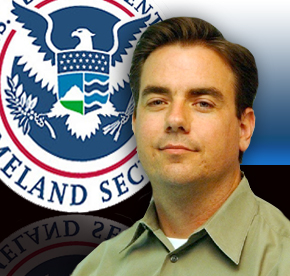Biodefense Knowledge Center's workload grows
 (Download Image)
Tom Bates
(Download Image)
Tom Bates
Given the multifaceted nature of the threats facing the U.S. in an age where information grows increasingly profuse and complex, it is not at all surprising that national demand for the Laboratory's Biodefense Knowledge Center (BKC) continues to expand.
While most of us only think about biological dangers when they hit the news, such as the current H1N1 "swine flu" panic or the recent avian flu scare, the BKC is constantly evaluating a wide range of potential biological threats against the United States. And sponsors in the Department of Homeland Security (DHS) have noticed.
BKC Director Tom Bates says the BKC has seen rapid growth in funding, customers and scope of work. "Our budget and workload has increased by almost 25 percent in the last year. A wide variety of organizations use our services, yet we're just starting to gain visibility."
Established in 2004 by DHS to coordinate biodefense information and biothreat assessments, the BKC is operated by Global Security's S Program. In the BKC, teams of scientists and engineers supplied from all corners of the Lab develop authoritative biothreat assessments, often informed by experts and collaborators outside LLNL.
What exactly does the BKC do?
According to Bates: "The BKC provides decision makers with authoritative, technical assessments so they can better understand current and emerging biological threats."
The BKC features a 24/7 technical support line to field operational questions, but most of the analytical work is focused on in-depth, technical analysis of biological agents and technologies, including the regular publication of awareness bulletins that evaluate whether emerging biotechnologies could be put to nefarious use against the U.S.
The BioShield Act of 2004 made DHS responsible for determining potential threats against the U.S. involving agents like anthrax, plague, smallpox and botulism. The BKC conducts threat assessments involving these agents, addressing the feasibility of such attacks as well as how many people might be exposed during each attack.
These assessments help more than DHS. The Department of Health and Human Services, for example, uses the results to better prioritize the acquisition and stockpiling of appropriate vaccines, antibiotics and other medical countermeasures.
An additional attraction to the BKC is its biodefense knowledge-management system, a collection of databases and knowledge-discovery tools that enable unique and time-saving analyses to support the biodefense community. The secure, Web-based systems also contain a growing number of reports and supporting research materials used to inform BKC assessments.
Bates credits the diverse and "phenomenally talented" staff of bioscientists, computer scientists and support staff for the success and growth of the center.




